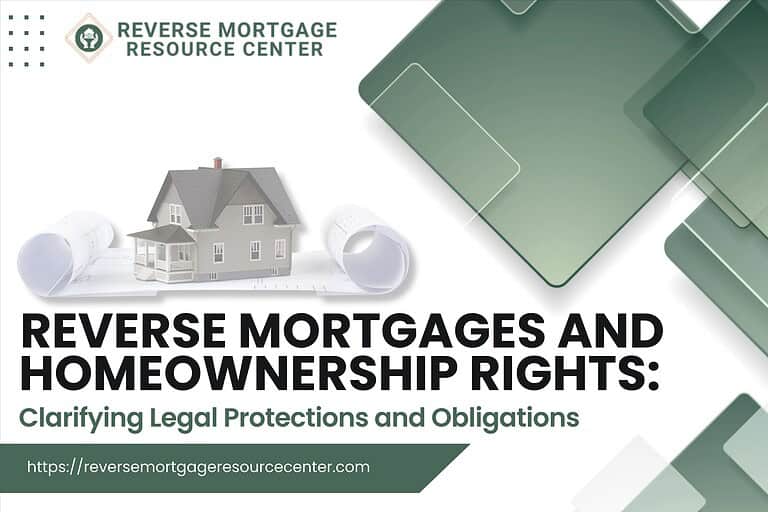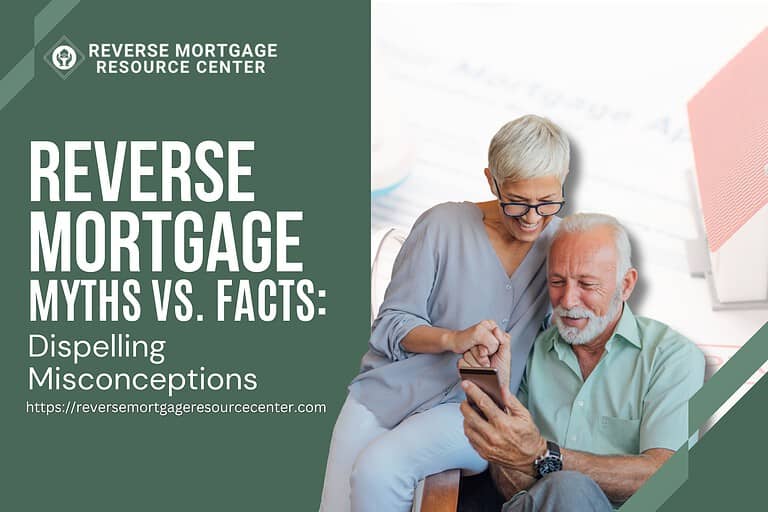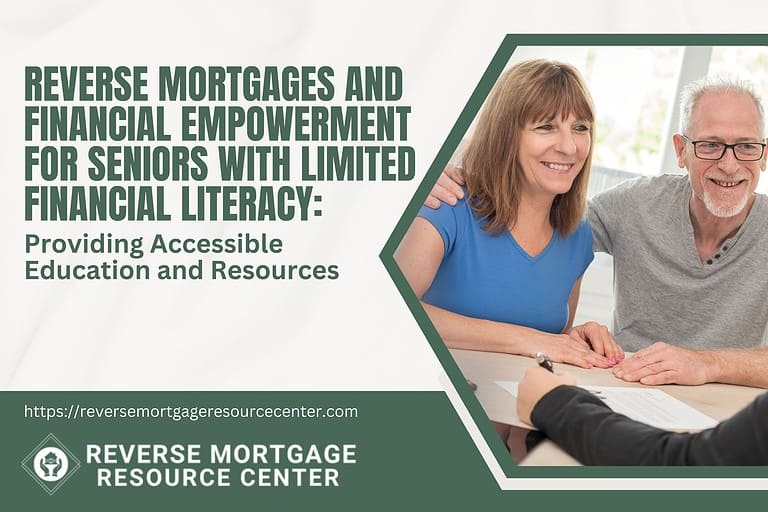Aging in Place with Confidence: Nevada’s Reverse Mortgage Options
The desire to age gracefully is universal, and for many seniors, it means remaining in their own homes for as long as feasible. Aging in place has a special meaning in Nevada, a state noted for its unique blend of natural beauty and bustling metropolis. Many Nevada seniors use reverse mortgages to reach this goal while still maintaining financial security. In this post, we’ll look at reverse mortgages, how they function, and why they can be a valuable tool for aging in the Silver State.
What is a Reverse Mortgage?
A reverse mortgage is a financial product developed exclusively for homeowners aged 62 and up. In contrast to a standard mortgage, which requires you to make monthly payments to the lender to purchase a property, a reverse mortgage allows you to convert a portion of your home equity into readily accessible funds while maintaining home ownership. It allows homeowners to access the equity they’ve built up in their homes over time, giving them financial security throughout retirement.
How Does a Reverse Mortgage Work?
Eligibility
To be qualified for a reverse mortgage in Nevada, you must meet the following requirements:
Age: You must be at least 62 years old.
Homeownership: You must own your house outright or have a low mortgage balance that can be paid off with the reverse mortgage proceeds.
Primary Residence: The property has to be your principal residence.
Financial Assessment: You must be able to cover continuing property expenses such as property taxes, insurance, and maintenance.
Types of Reverse Mortgages
In Nevada, there are three types of reverse mortgages available:
Home Equity Conversion Mortgage (HECM): The Federal Housing Administration (FHA) insures HECMs, the most frequent type of reverse mortgage. It allows you to get your funds in various ways, including monthly installments, a lump sum, a line of credit, or a mix of these.
Single-Purpose Reverse Mortgage: Some state and municipal government entities and non-profit organizations offer single-purpose reverse mortgages. It’s intended for specific tasks like paying property taxes or repairing houses.
Proprietary Reverse Mortgage: These are reverse mortgages that are privately insured and are offered by banks and mortgage companies. They are frequently appropriate for homeowners with higher house values and may give larger loan amounts.
Loan Disbursement
When you qualify for a reverse mortgage, you have the option of receiving your funds in a variety of ways. You have the option of:
Lump Sum: Receive a lump sum of the loan proceeds.
Monthly Payments: Receive tax-free installments regularly.
Line of Credit: Access funds anytime you need them with a line of credit.
Combination: Tailor your disbursement strategy to your specific requirements.
The Benefits of a Reverse Mortgage for Aging in Place
Financial Flexibility
The financial freedom a reverse mortgage provides is one of its key benefits. Reverse mortgage funds in Nevada can be used for a variety of purposes, including:
- Covering day-to-day living expenses.
- Paying off existing debts or mortgages.
- Financing home improvements or repairs to make a home safer and more comfortable for aging in place.
- Supplementing retirement income.
- Funding healthcare expenses and long-term care insurance.
This adaptability enables Nevada seniors to tailor their financial strategy to their requirements, delivering a comfortable and secure retirement.
No Monthly Mortgage Payments
The fact that you do not have to make monthly mortgage payments is perhaps the most tempting feature of a reverse mortgage. Instead, the loan is paid off when you sell your property, move out, or pass away. This relieves you of the financial strain of monthly mortgage payments, freeing up your income for other necessities.
Retain Homeownership
Contrary to popular belief, a reverse mortgage does not give the lender ownership of your house. You retain ownership of your home and the title to it. This means you can stay in your house for as long as you like, retaining the independence and comfort you’ve grown accustomed to.
Guaranteed Loan Proceeds
The FHA-insured HECM loans have a key advantage: guaranteed loan proceeds. You will get the funds even if the lender leaves the business or the loan total exceeds the home’s value. This government insurance gives borrowers peace of mind by assuring that they receive the finances they need to age in place confidently.
No Income or Credit Score Requirements
Unlike standard mortgages or home equity loans, reverse mortgages do not have income or credit score limitations. Eligibility is determined mostly by age, home equity, and capacity to fund property bills. This makes reverse mortgages available to the elderly with little income or poor credit.
Considerations and Caution
While reverse mortgages have numerous advantages, it is critical to examine potential downsides and proceed with caution:
Loan Costs
Fees and costs associated with reverse mortgages include origination fees, mortgage insurance payments, and closing costs. These expenses may lower the money you receive initially, so it’s critical to understand the financial ramifications before beginning.
Impact on Heirs
The reverse mortgage must be repaid when you pass away or leave your home. This repayment usually entails selling the residence. While you can leave your home to your heirs, if they want to keep it, they must return the loan sum. Addressing this with your family and heirs is critical to ensure that everyone understands the ramifications.
Long-Term Planning
A reverse mortgage is a long-term investment. You must plan for the future, considering anticipated healthcare bills and changes in your living environment. While reverse mortgage funds can help with these expenses, proper financial preparation is required to ensure you age in place comfortably.
Nevada’s Reverse Mortgage Market
The reverse mortgage market in Nevada is thriving, with numerous respectable lenders offering several choices customized to the needs of seniors. Before applying for a reverse mortgage, you should:
Research Lenders: Take the time to research and compare Nevada lenders. Look for lenders with a proven track record of providing excellent customer service and transparency.
Seek Guidance: Consult with a reverse mortgage counselor approved by the U.S. Department of Housing and Urban Development (HUD). They may offer unbiased guidance and assist you in comprehending the terms and ramifications of a reverse mortgage.
Understand State Regulations: Nevada has reverse mortgage requirements. Make sure to familiarize yourself with these requirements and, if necessary, seek legal advice.
Financial Assessment: Evaluate your financial condition and long-term goals. Determine the role of a reverse mortgage in your retirement strategy.
Final Thoughts
Many seniors in Nevada want to age in place with confidence, and a reverse mortgage can help them reach that objective. You may keep your financial independence, eliminate monthly mortgage payments, and continue to live in the location you call home by unlocking the equity in your house. However, it is critical to proceed cautiously, understand the expenses and ramifications, and seek advice from qualified authorities. You can enjoy your retirement in the Silver State with peace of mind and financial stability if you have the correct information and a well-thought-out plan.
REVERSE MORTGAGE RESOURCE CENTER ~LIVE LIFE ON YOUR TERMS~
Our Lending Team has been serving our clients since 2004. We are passionate about serving our clients with integrity to help them achieve their financial goals.







